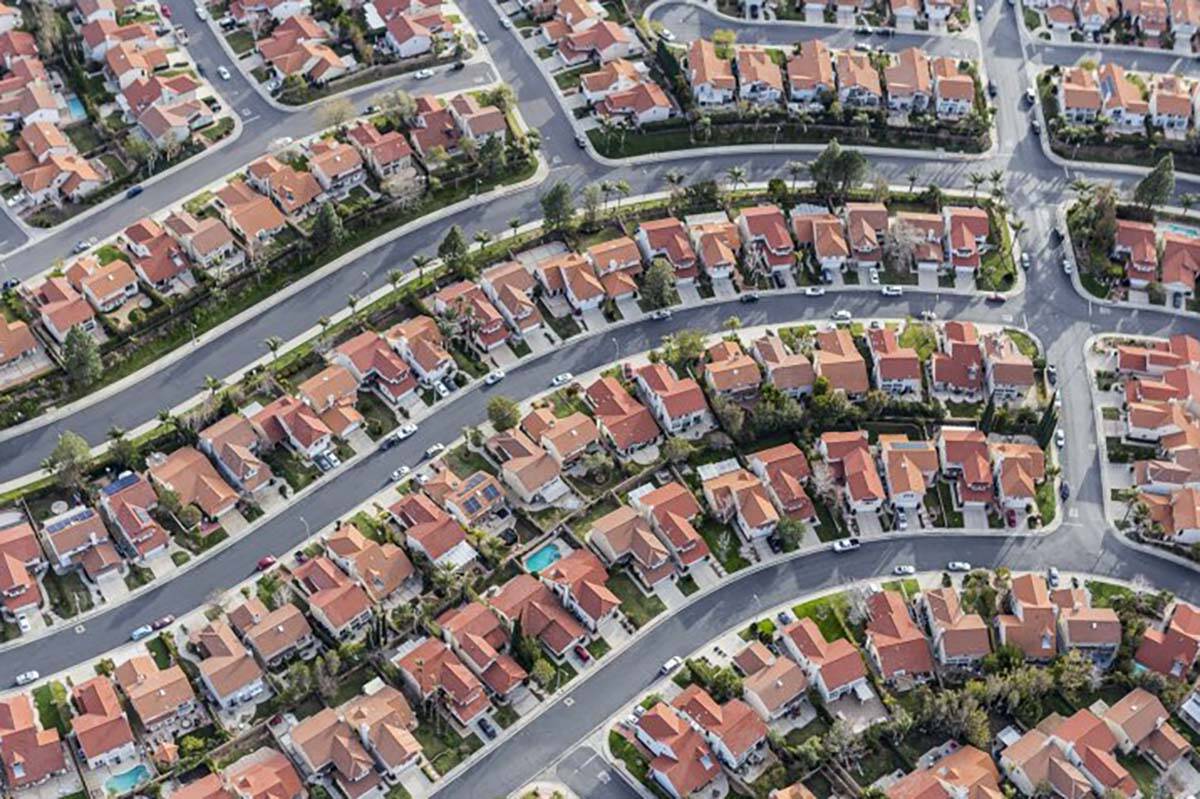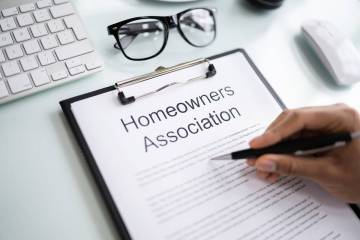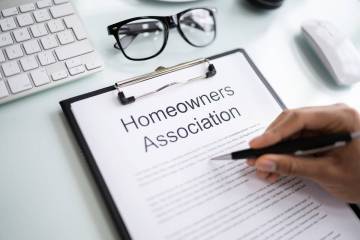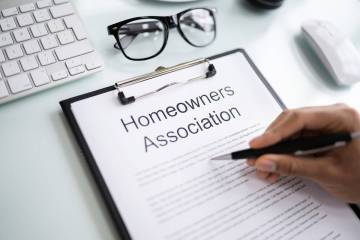New law helps protect homeowners’ private information
Note: This is the second column in a two-part series by Las Vegas attorney Adam H. Clarkson. Today, he talks about how Senate Bill 378 helps HOAs protect homeowners’ private information online.
In addition to imposing cybersecurity insurance and data protection requirements for homeowners associations’ online assessment payment processors, SB378, which was adopted this legislative session and then went into law, helps HOA protect homeowners’ private information and streamlines the email notification process.
Is homeowners’ documents and information other than payment processing protected by SB378? Yes. A prior law passed in 2021, albeit well intended, needlessly exposed a litany of homeowners’ private information by forcing HOAs to provide internet access to such information without any provisions for cybersecurity or cyber liability insurance. SB378 eliminated the requirements for HOAs to maintain homeowners’ private data on hackable websites. Instead, SB378 allows HOAs to make proper business decisions as to whether they are able to maintain online access to homeowners’ confidential information. This change will have virtually no impact on Nevada homeowners that will be discernable from the information and services owners are accustomed to accessing with their HOA, but it has eliminated a palpable cybersecurity risk for unsuspecting homeowners who were in HOAs that were not going to be able to securely comply with state-mandated online information requirements.
Notices by email
For over a decade, many HOA legal notices were permitted to be sent to homeowners by email provided an owner “opted in” to receive such notices via email on a form provided by their association.
Those notices included, but were not limited to, meeting notices, budget notices, notices of rule changes and similar notices, which would otherwise be a lot of paper that many owners never bother to read. However, in all cases, HOAs were only able to realize the cost savings and reduced paper waste for owners that filled out a form “opting in” to receiving electronic notices.
In 2021, a law was passed with a stated intent of improving the ability for HOAs to use emails. However, the opposite was true. That law needlessly imposed duplicate notice provisions that required notices sent to owners to be both mailed and emailed. As a result, the law stripped away the cost savings and reduced paper waste enjoyed by HOAs for years, while simultaneously filling the postal boxes of owners who expected to receive their notices by email. Perhaps even more troublesome, the 2021 law imposed this duplicate notice requirement upon “any communication from or other information provided by” an HOA. Consequently, free speech at HOAs was chilled because communications such as e-newsletters informing owners of the upcoming pancake socials, e-blasts announcing recovery of lost keys in a clubhouse and e-blasts notifying owners of last-minute water or electricity shut-offs by utility service providers also would have to be mailed at a substantive expense to the HOA. Obviously, the problems created by the law passed in 2021 needed to be addressed and, thankfully, they were in the 2023 legislative session.
In the 2023 legislative session the notice provisions of NRS 116.31068 were changed to correct the problems created in 2021 and facilitate an increased ability for HOAs to send notices by email. Under the new law, many HOA legal notices may be sent to homeowners by mail or email at the discretion of the HOA.
Owners are no longer required to “opt in” in order to receive email notices. Instead owners may simply “opt out” of receiving email notices and then receive notices by mail or any other reasonable method. Further, thanks to the 2023 legislative changes, there are no longer any restrictions on how communications and information that are not legal notices may be sent. Thus, HOAs may resume e-blasting newsletters or posting information about finding a lost dog on the community billboard without having to spend thousands of dollars mailing the same information to every owner in the community.
Will your HOA be able to send you email notices if you have sent your community manager an email? Yes, unless you opt out of receiving email notices. Unless an owner opts out of receiving electronic notices, the new law allows HOAs the ability to send owners notices to an email address an owner has provided to the HOA in a manner other than by specific designation (example: by using the email in communications with the HOA), by hand delivery, by mail or by any other reasonable method.
What if you do not want to receive notices by email? Simply opt out of receiving such notices by informing your HOA of the same. Thereafter, the HOA will be required to send your notices by hand delivery, by mail or by any other reasonable method.
Should you be concerned that you could end up with a fine or in collections without knowing it if you do not opt out of email notices because the HOA sends notices to an old email address you no longer check? No. NRS 116.310jm68 is merely a catchall for legal notices an HOA must send that are not specified elsewhere in the law. The new email notice law does not apply to collection notices or hearing notices for violations/fines, which still must be sent by mail. The new email notice law applies to items like meeting notices, budget notices, notices of rule changes and similar notices, which you probably were not reading anyway if you did not realize they were coming by email instead of mail.
It’s simple: If you want to save paper and money, then designate an email address for your association to send you notices. If you would rather receive physical documents, then opt out of receiving notices by email.
Adam H. Clarkson, Esq., CCAL, is the owner of The Clarkson Law Group P.C., a community association law firm. Clarkson is a member of the Fellows of the Community Associations Institute’s (CAI) College of Community Association Lawyers. He is the chair of CAI’s Nevada Legislative Action Committee, former chair and current member of the CAI Nevada Political Action Committee, past president and current member of the CAI Nevada Chapter board of directors, the industry representative on the Nevada Department of Business & Industry’s CIC Task Force and a member of the Nevada State Bar Real Property Committee. He also is co-author of the Common Interest Community Section of the “Nevada State Bar Real Property Practice Manual.”




























